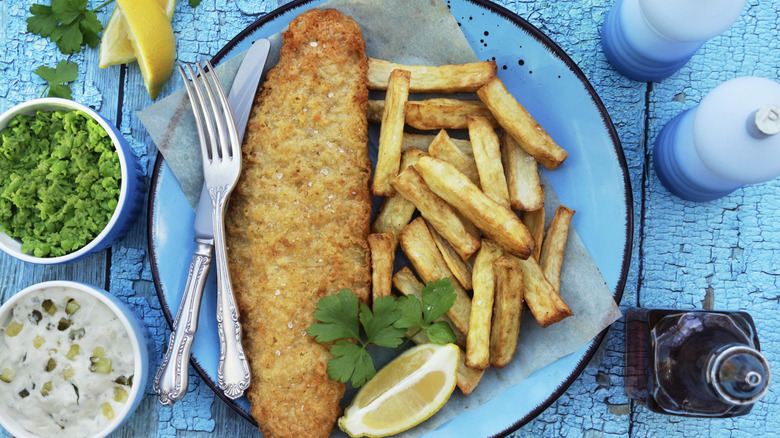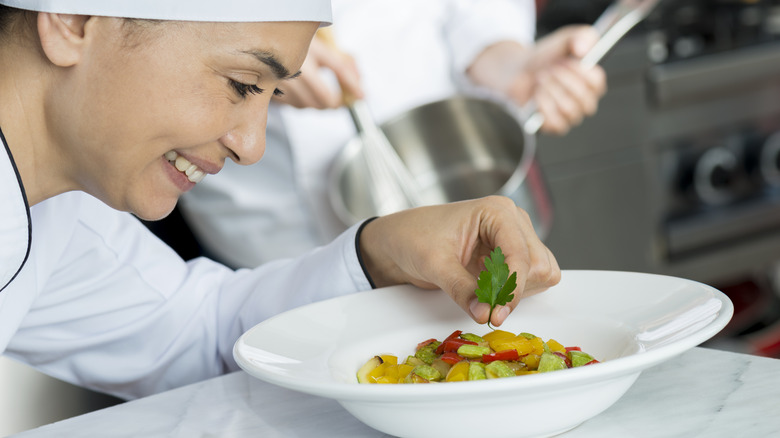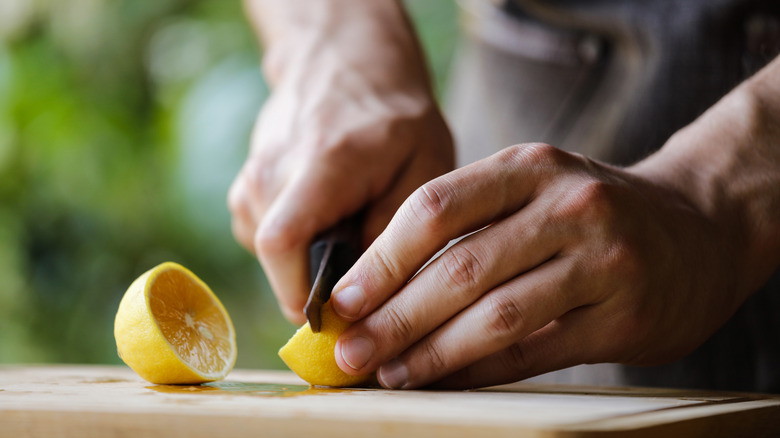Why You May Want To Avoid Eating Garnishes At Fast-Casual Restaurants
When you were a kid, you might have been told to finish your food and leave nothing on your plate. Hopefully, this didn't apply to eating out, as a closer look at the garnishes used at fast-casual restaurants is almost guaranteed to excuse you from this rule.
Garnishes are extras such as parsley, lemon slices, or the cherry on top that make a dish look more appetizing or presentable. Depending on the amount or how they're placed on the plate, some side dishes like coleslaw or small amounts of salad might also count as garnishes.
Unless you own the restaurant or your order is prepared right in front of you, there's just no way you can be sure that the garnishes in your cocktail or food were properly handled. Even then, unless you're a particularly sharp-eyed customer, you also can't be sure of just how fresh the garnishes are — or whether they might have come off of someone else's plate.
How garnishes are supposed to be handled at restaurants
"Never eat any garnishes or pickles," said a restaurant worker in an interview with Reader's Digest. "The place I worked at would wash them and reuse them if you did not eat them." While a fast-casual restaurant may be called out for practices of this sort, a fine dining restaurant could also be tripped up by regulations that make sure that all food — not just garnishes — are handled properly.
Examples of these regulations include keeping garnishes chilled and throwing them away after four hours if they haven't been used. Garnishes for drinks should also be prepared at a safe distance from where germs from customers might be able to reach them. If you can watch your drinks or food being prepared, bear in mind that some states permit restaurant staff to handle garnishes without gloves.
Whether you are eating out in those states or not, make a note of how clean the hands of the workers are, and whether they're using clean knives and cutting boards. You may also want to keep an eye out for garnishes that could have been recycled such as kale, cottage cheese, rosemary, and little pieces of fruit like grapes or strawberries.
Beware especially of lemon slices
Diners at fast casual restaurants should be particularly wary of lemon garnishes, as they are one of the least sanitary items in a restaurant. Lemons can pick up germs even before they get to the kitchen, and once there, they're not always washed before they're sliced. Lemons can also pick up germs from the very knife that sliced them, and even from each other, as they're often sliced several at a time and placed in the same container.
A study by the National Environmental Health Association (NEHA) found that both the rind and the flesh of the lemons used by the restaurants they inspected contained yeast and microbes that could be ingested by a customer. While the study didn't cover the chances of a customer actually getting sick from eating these microbes, they did carry the risk of infectious disease.
The study also mentions how the yeast could have come from the oral secretions or feces of a restaurant worker. These workers, as well as the customers themselves, might have contaminated the lemons with traces of feces simply by not washing their hands well after using the restroom. With that in mind, maybe you'll want to request no lemons at all, please!


